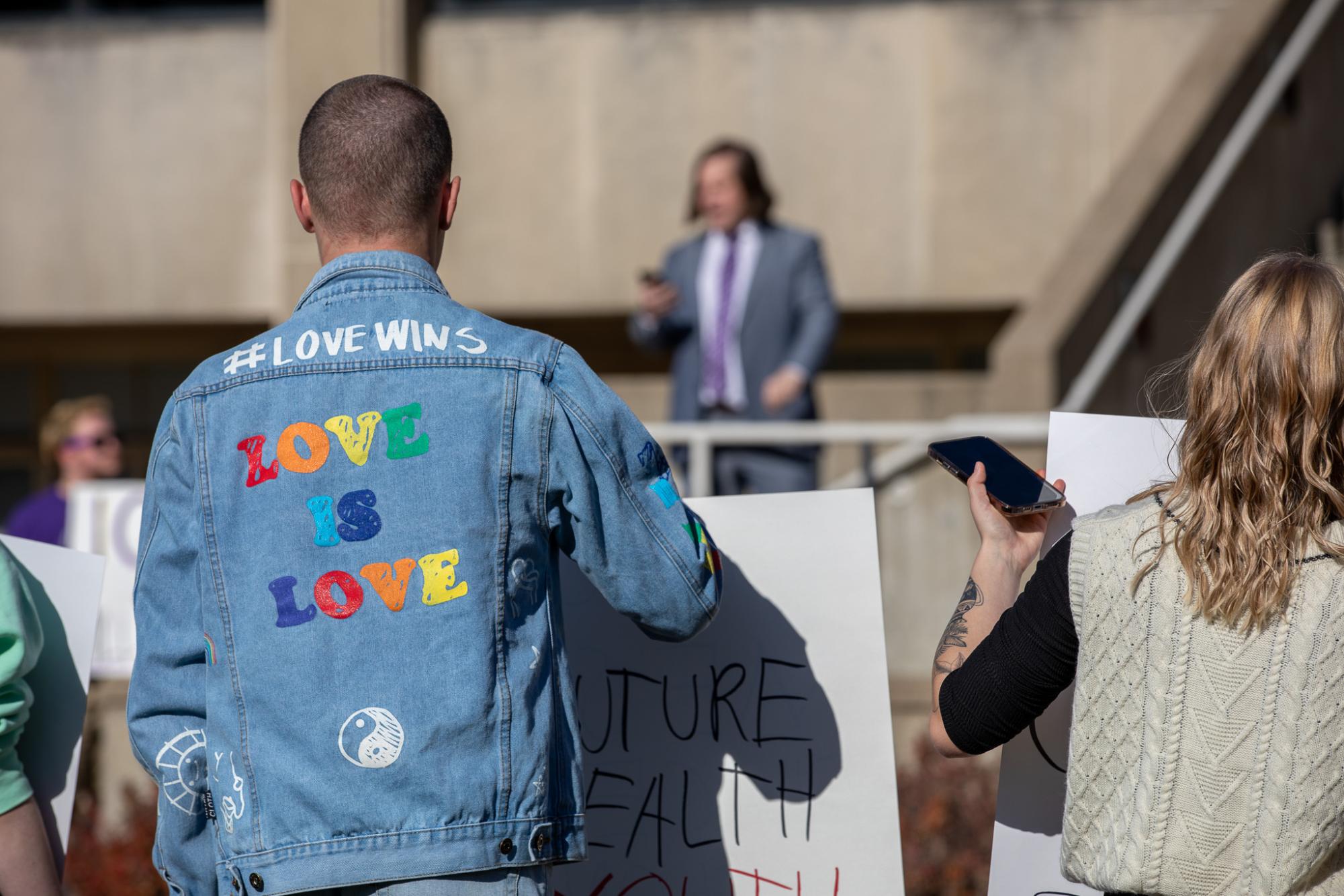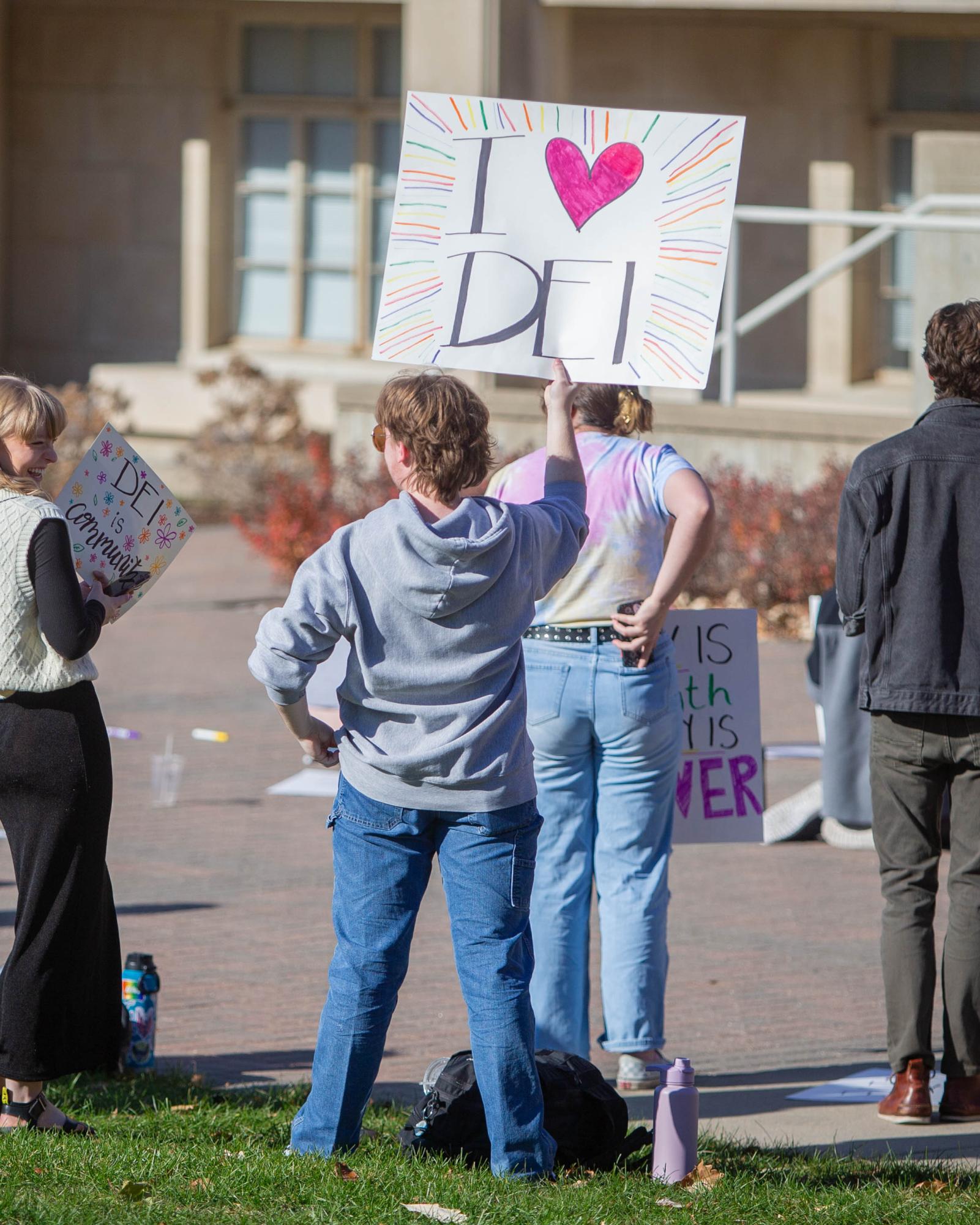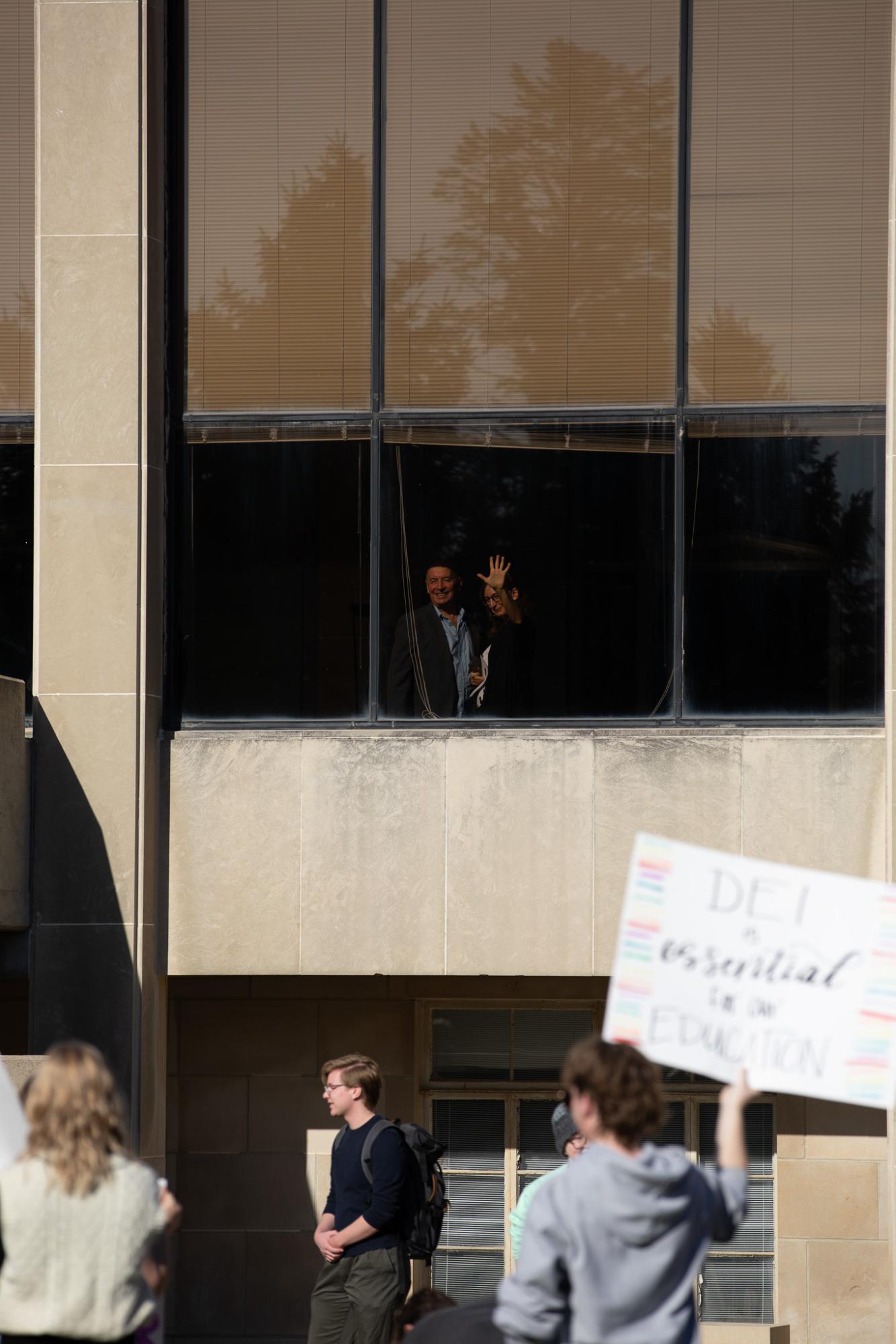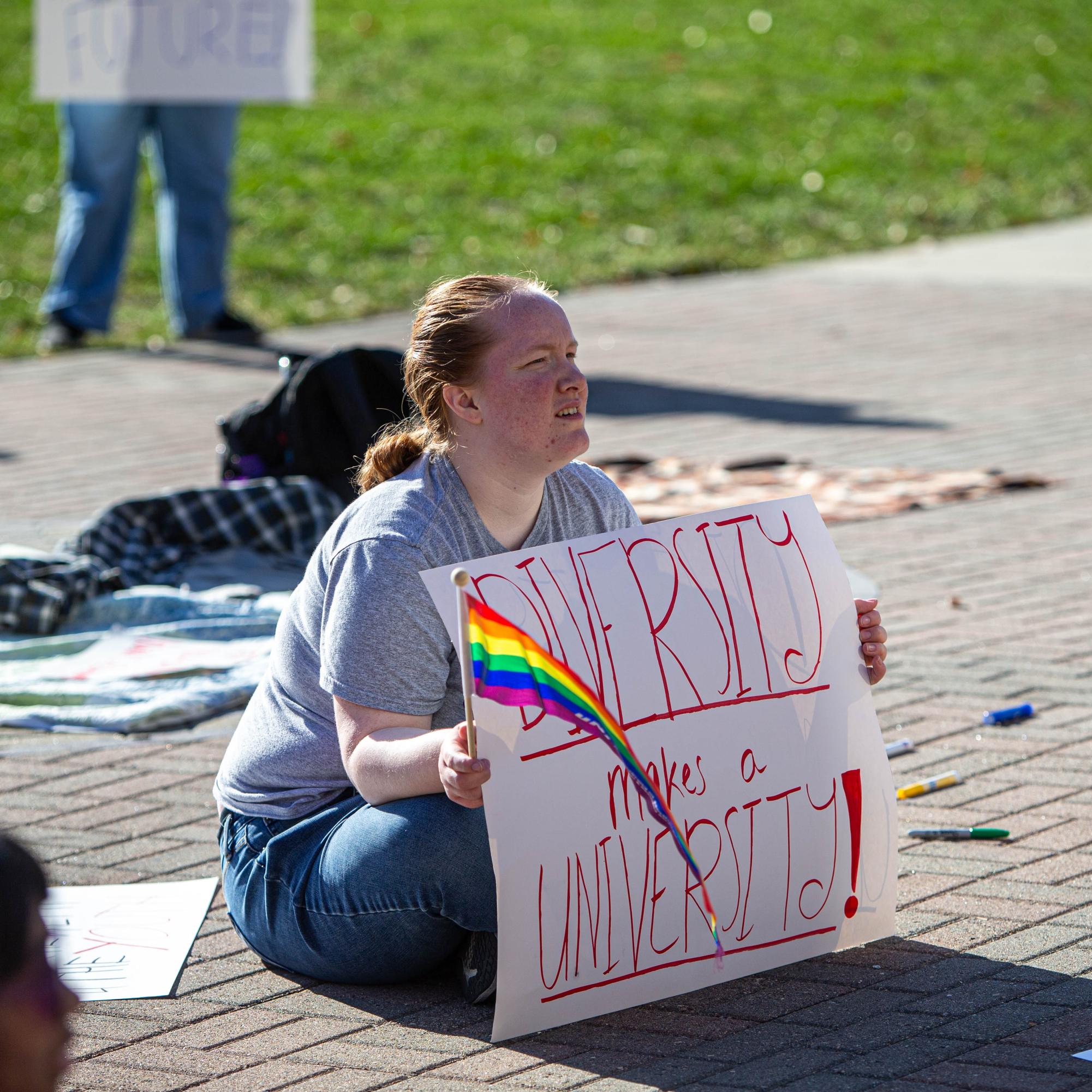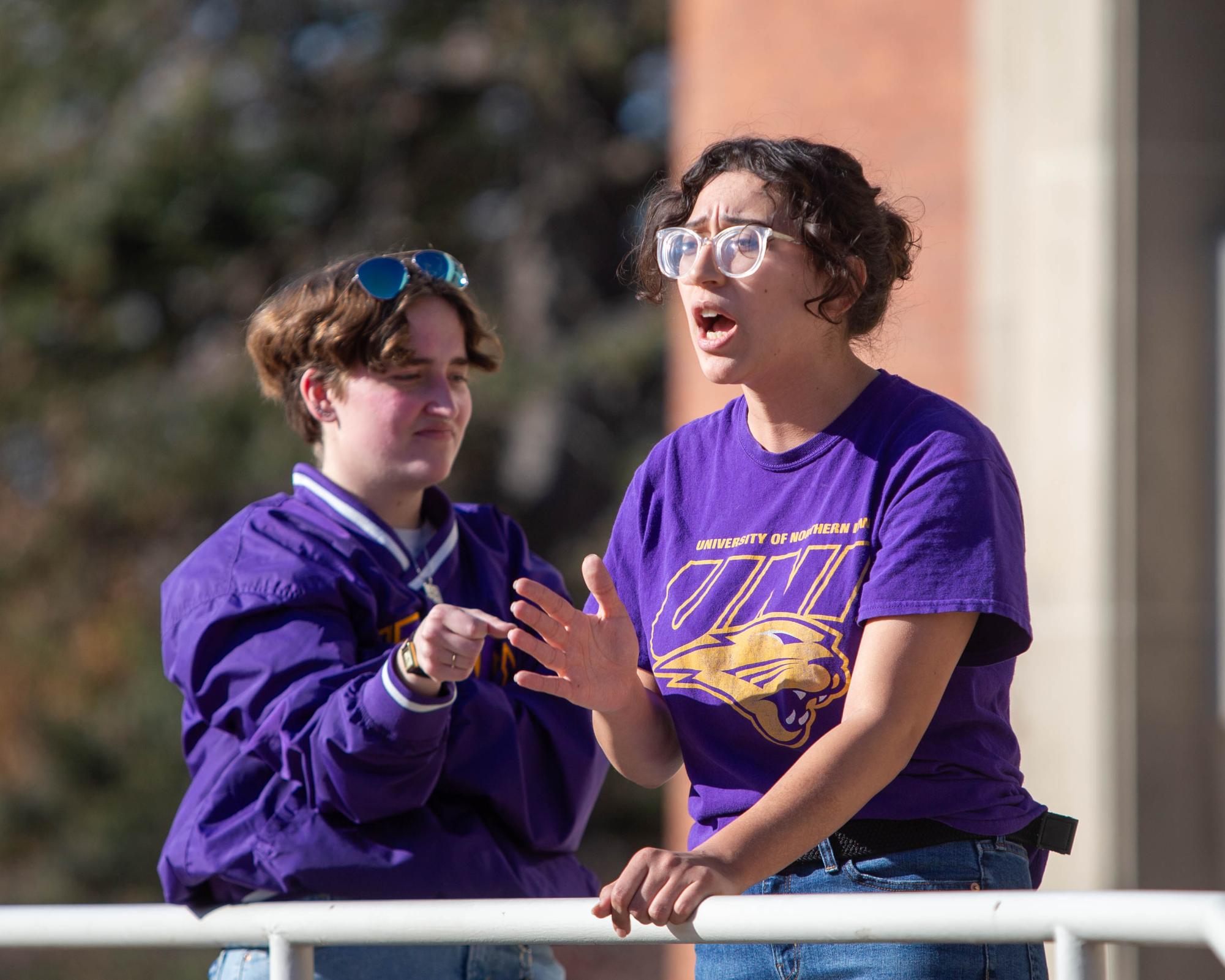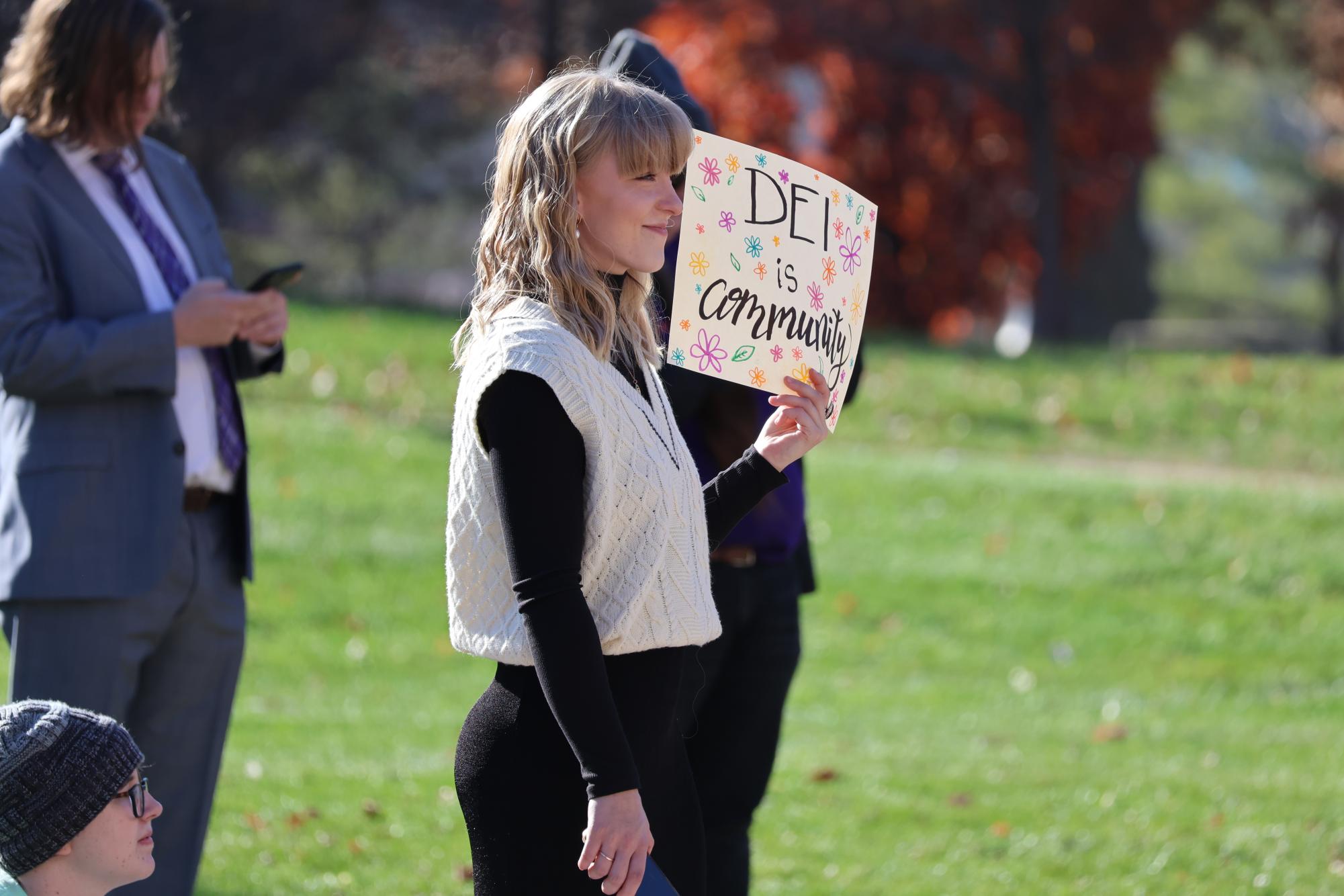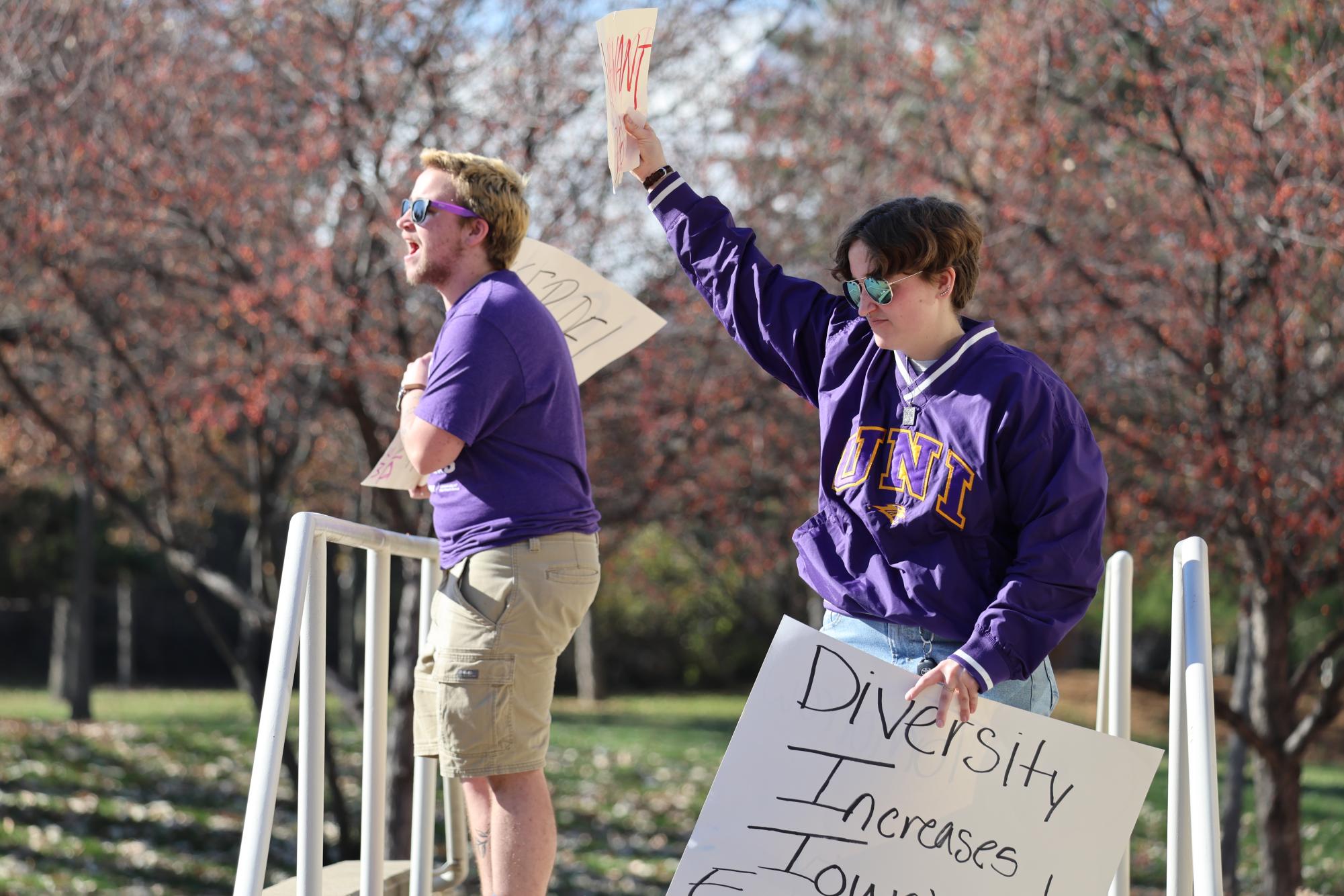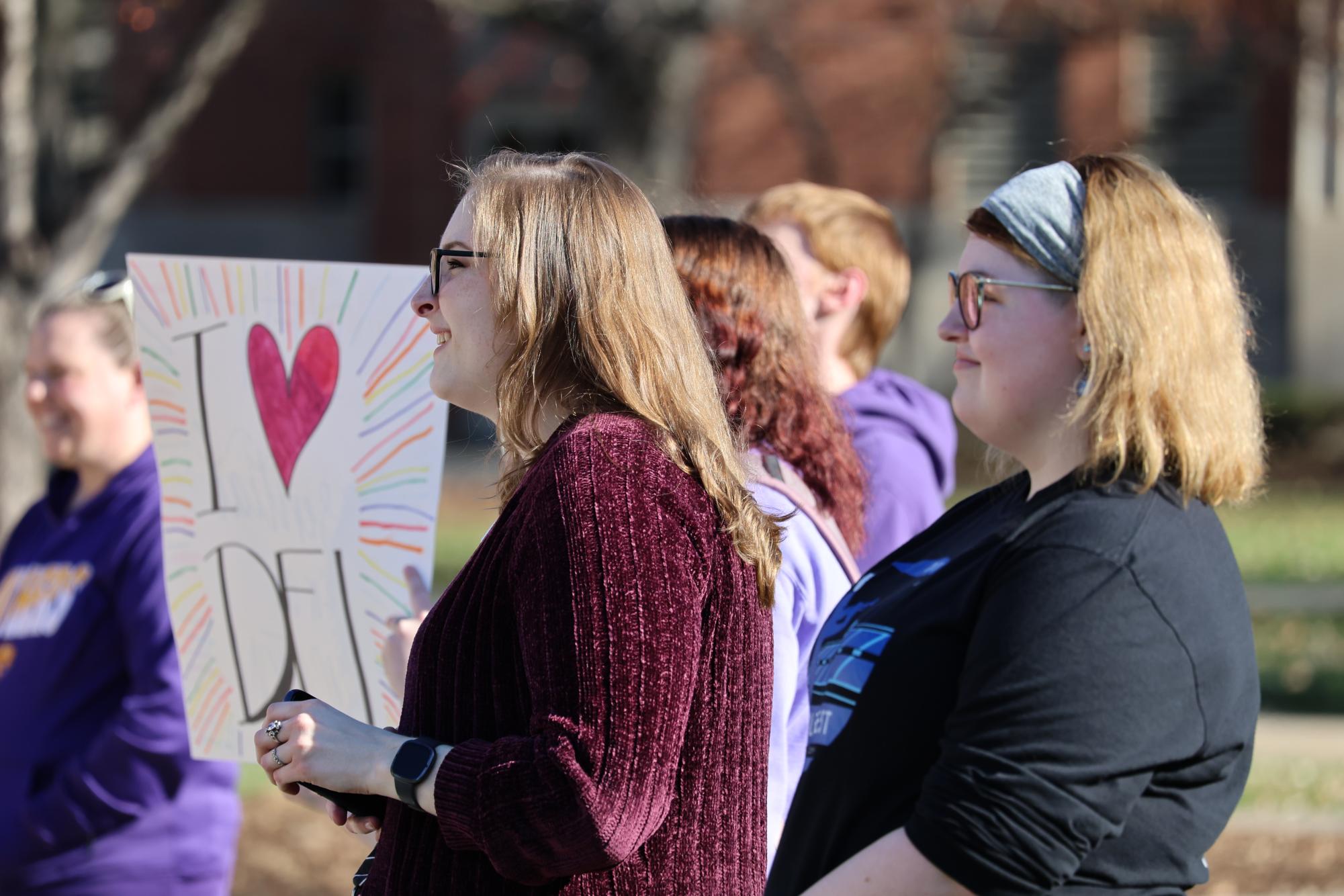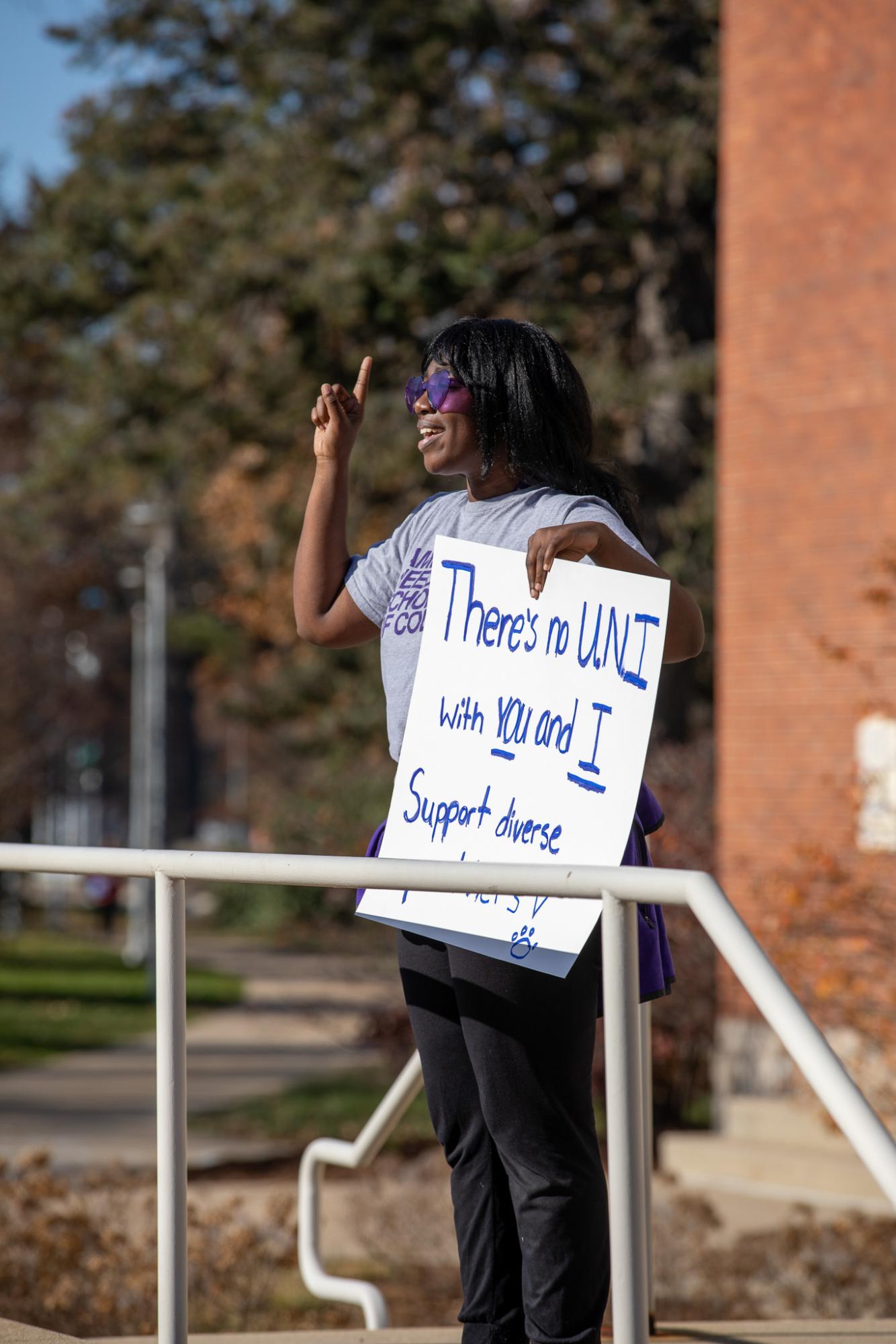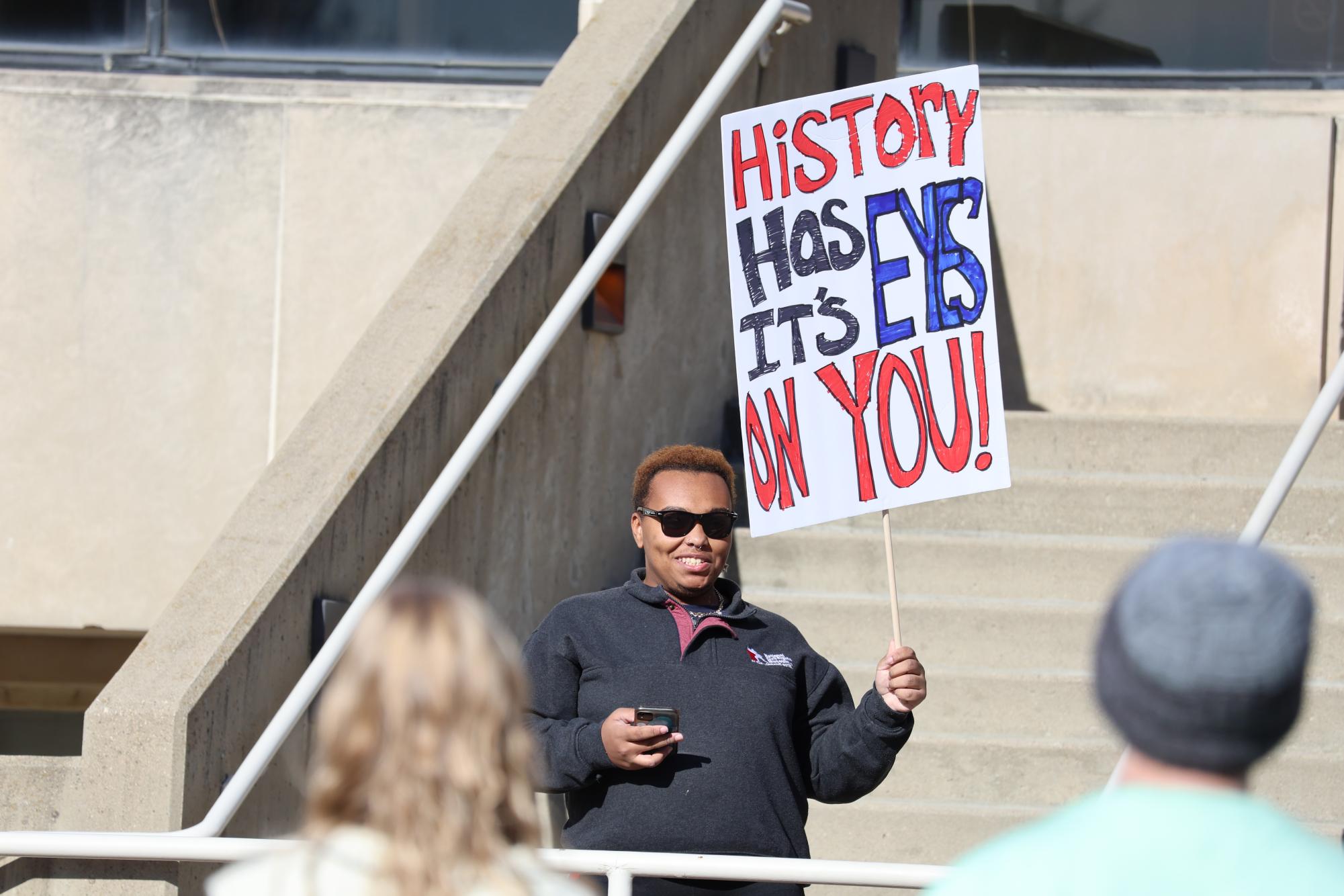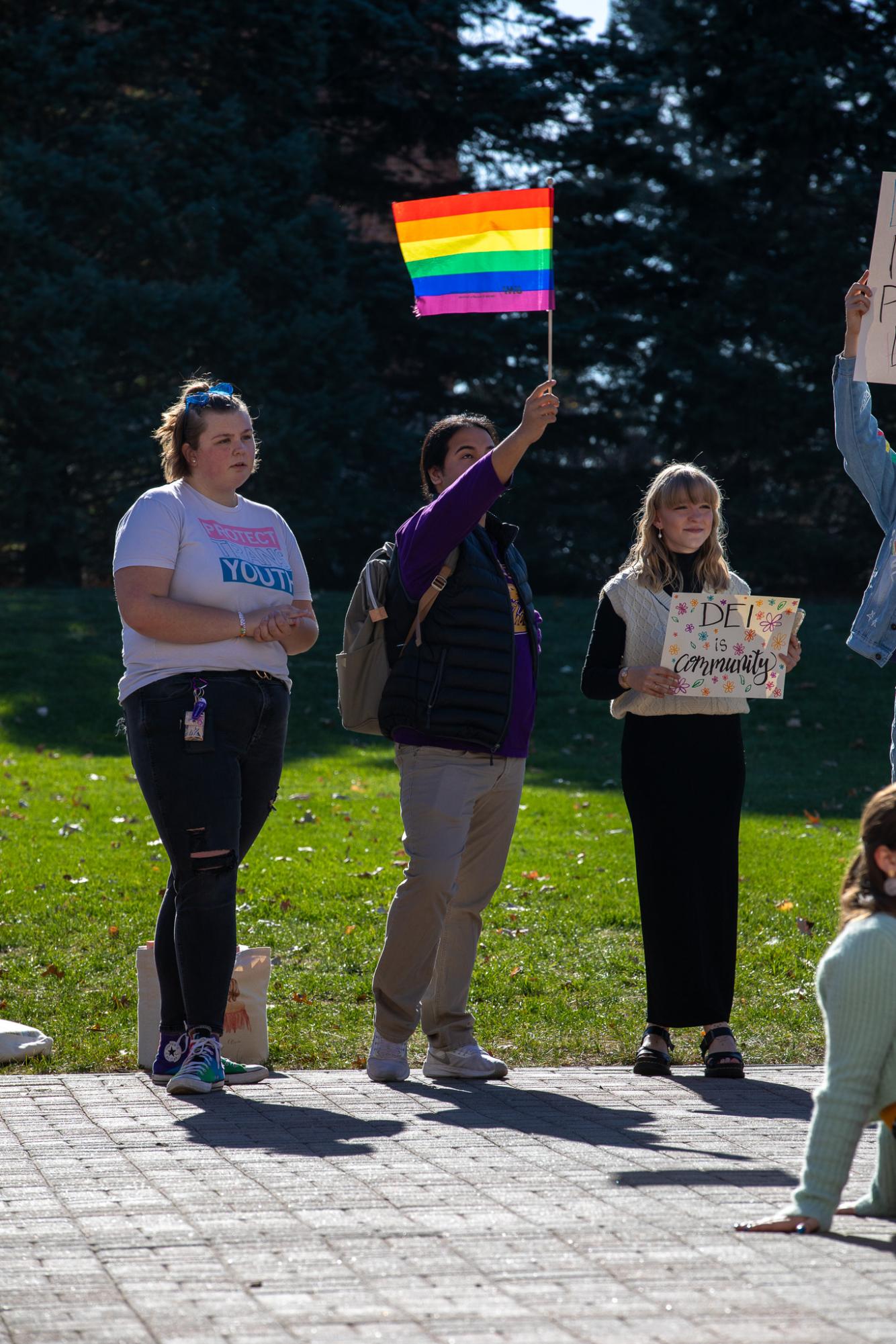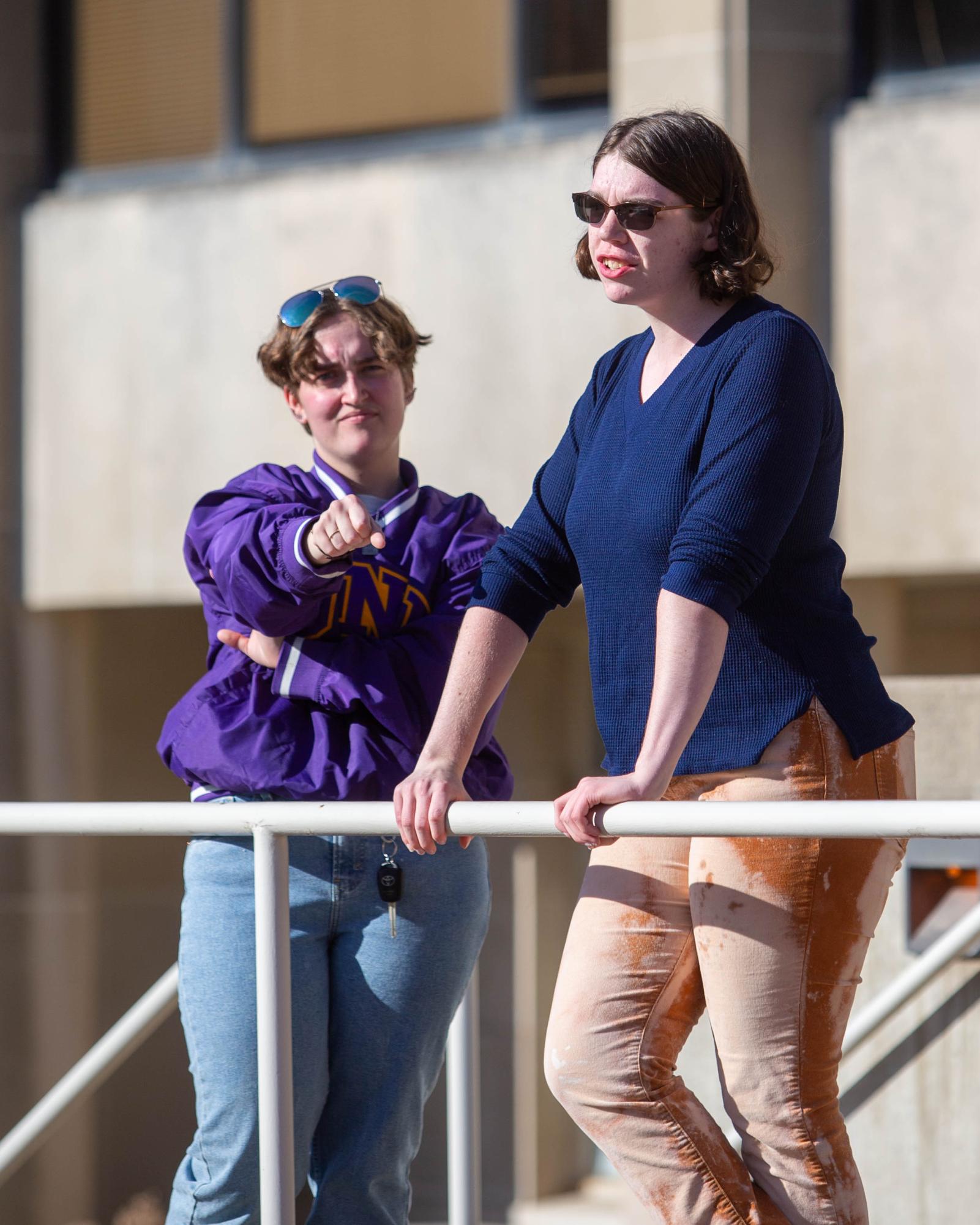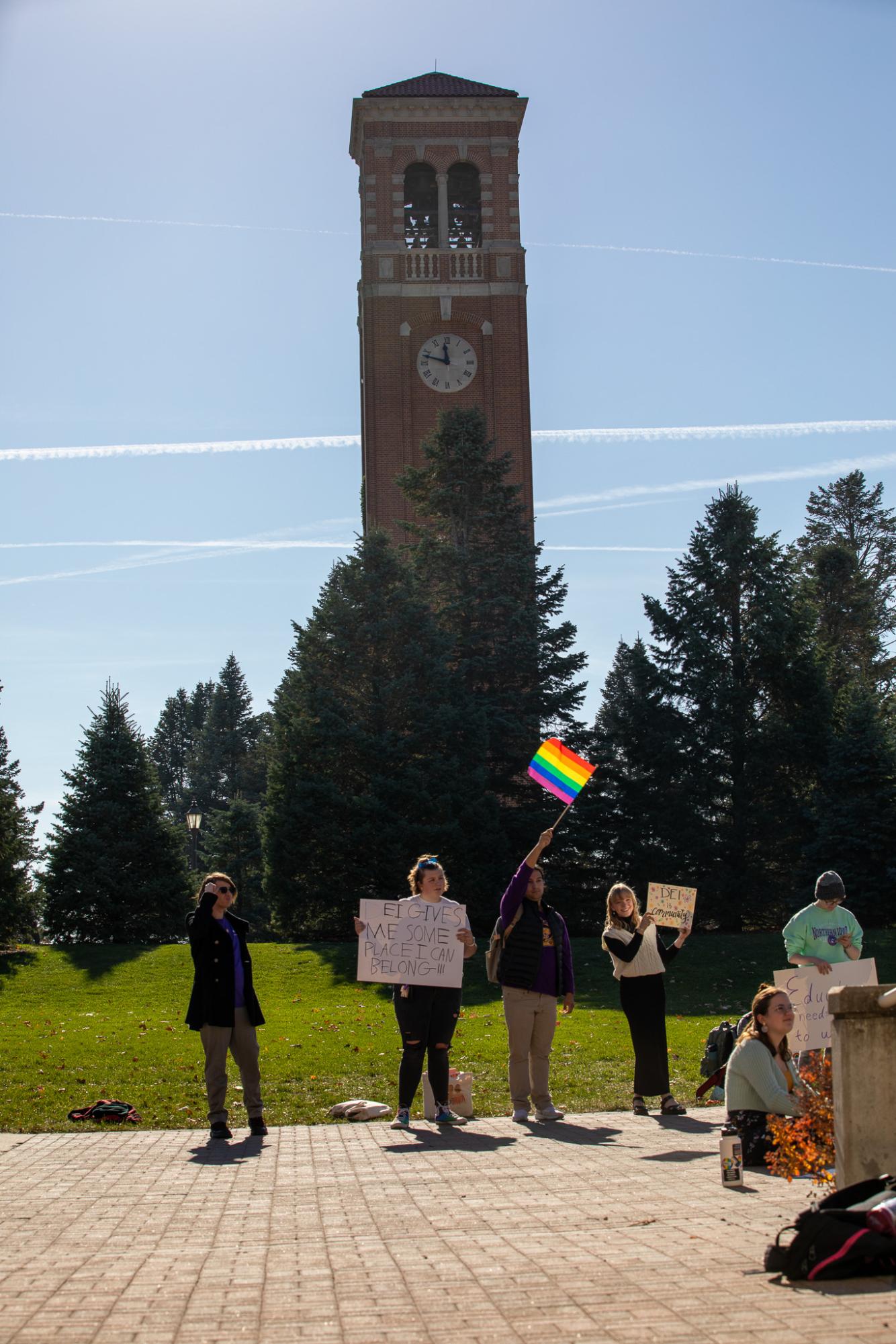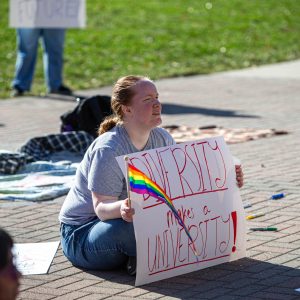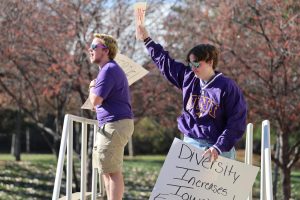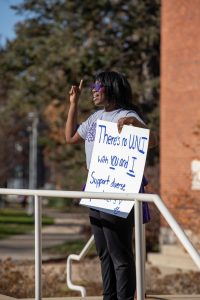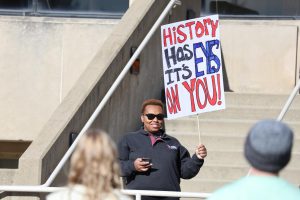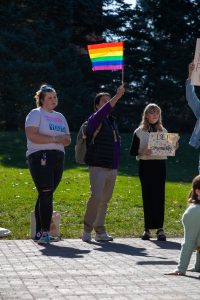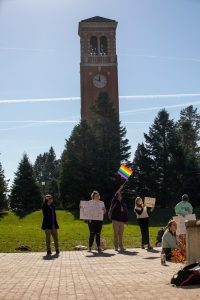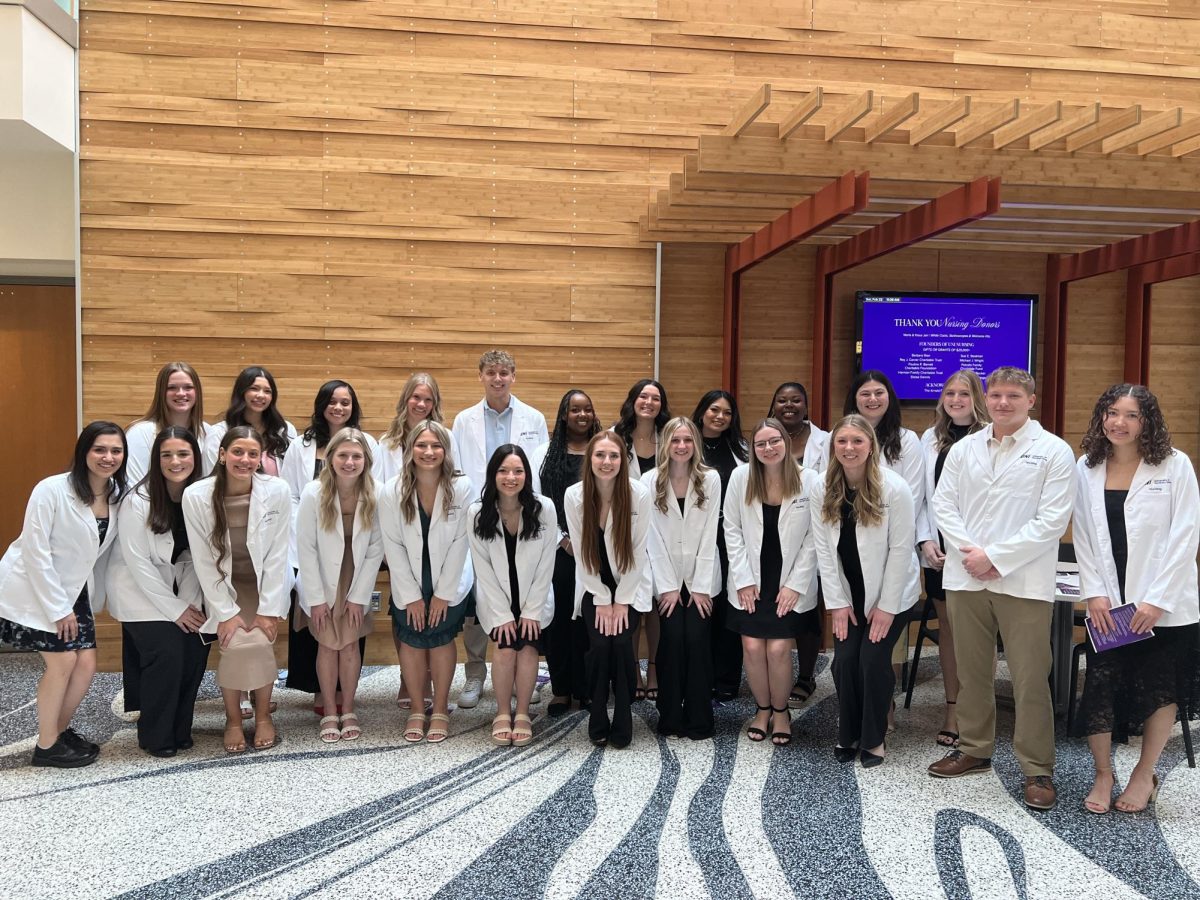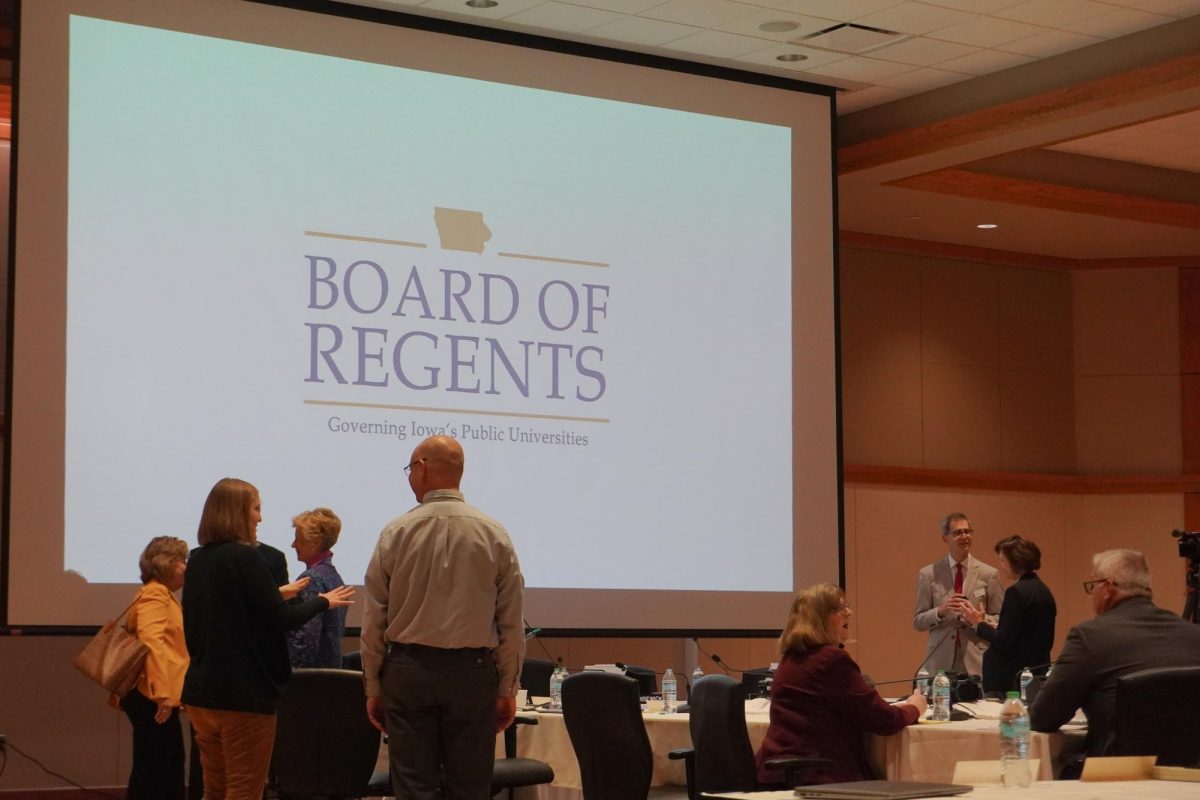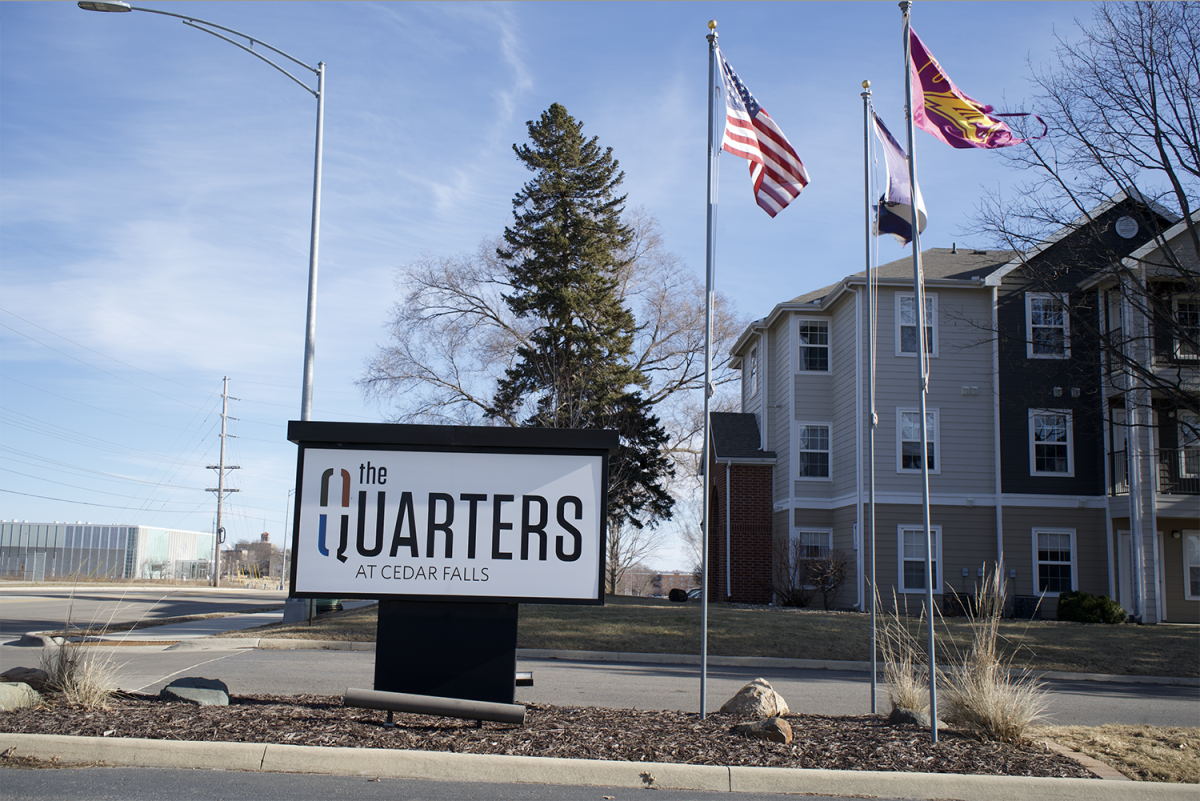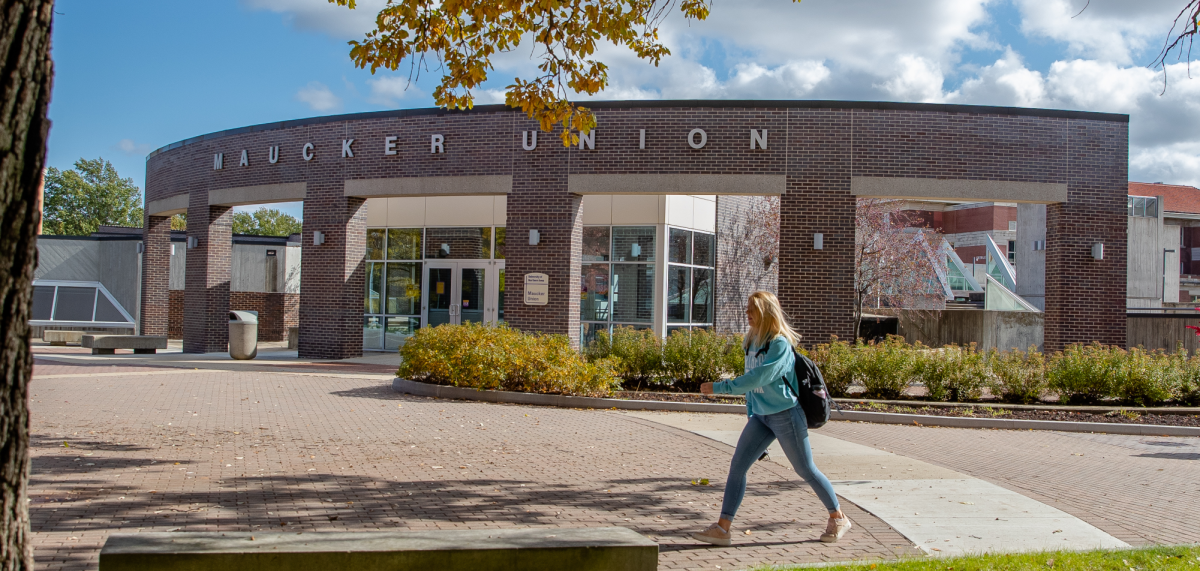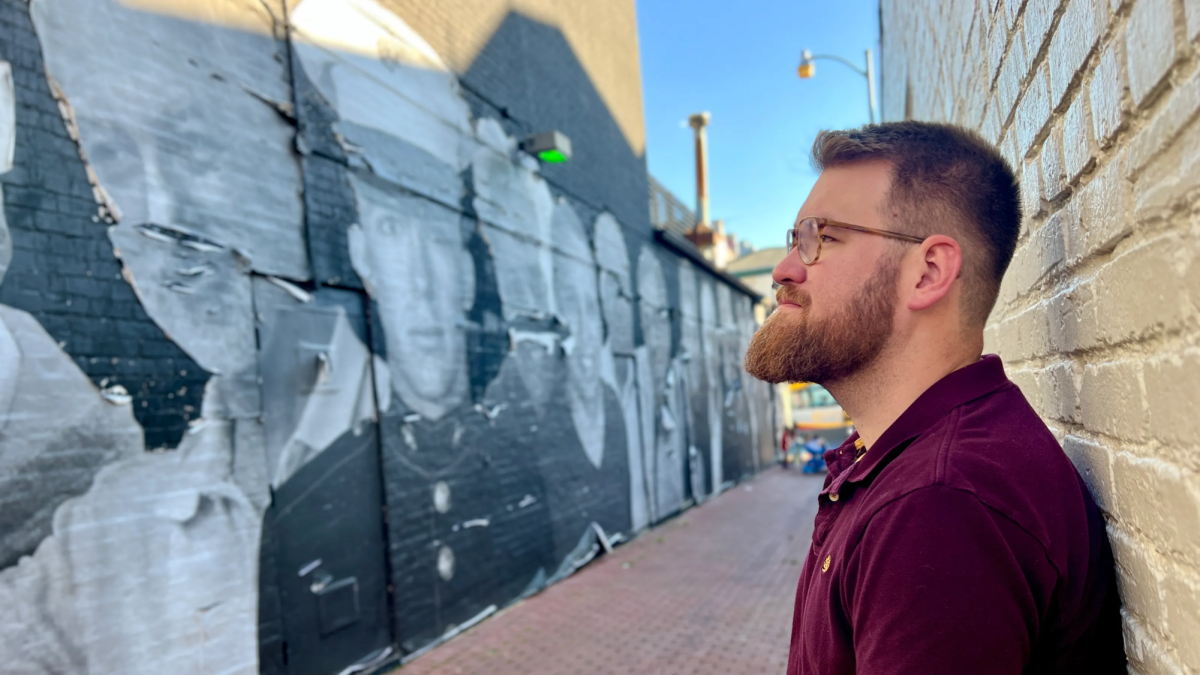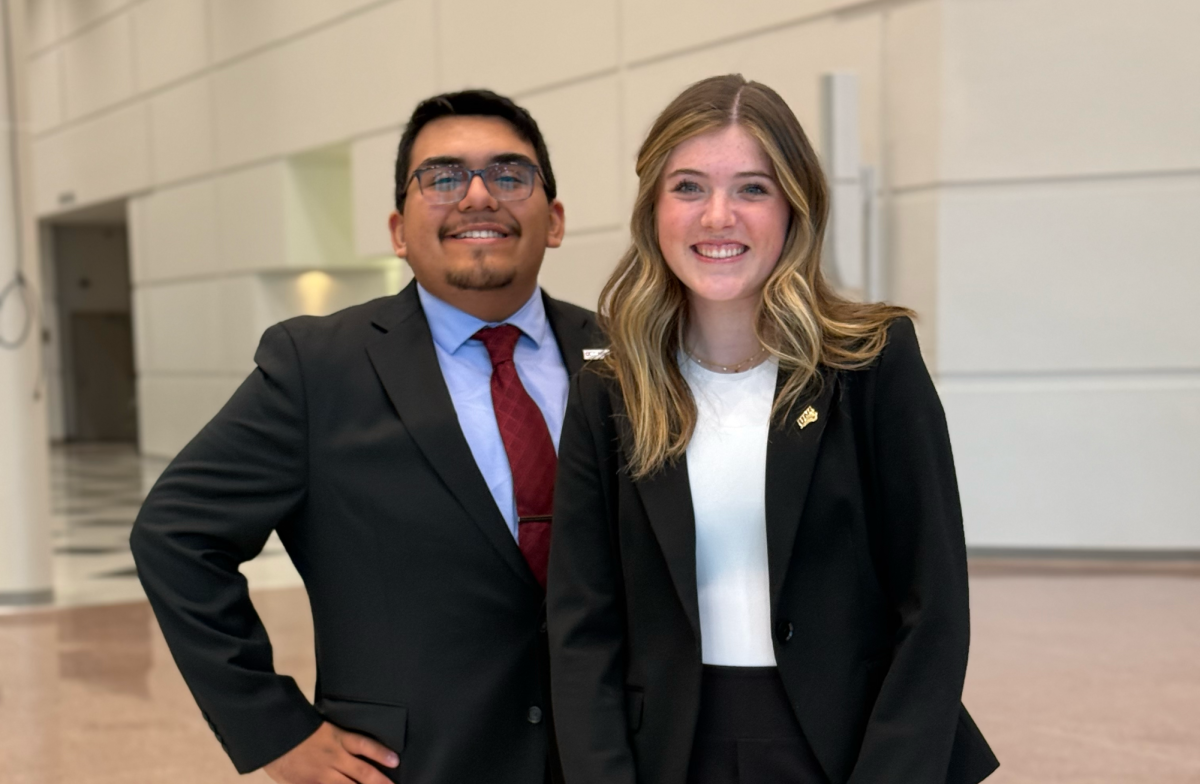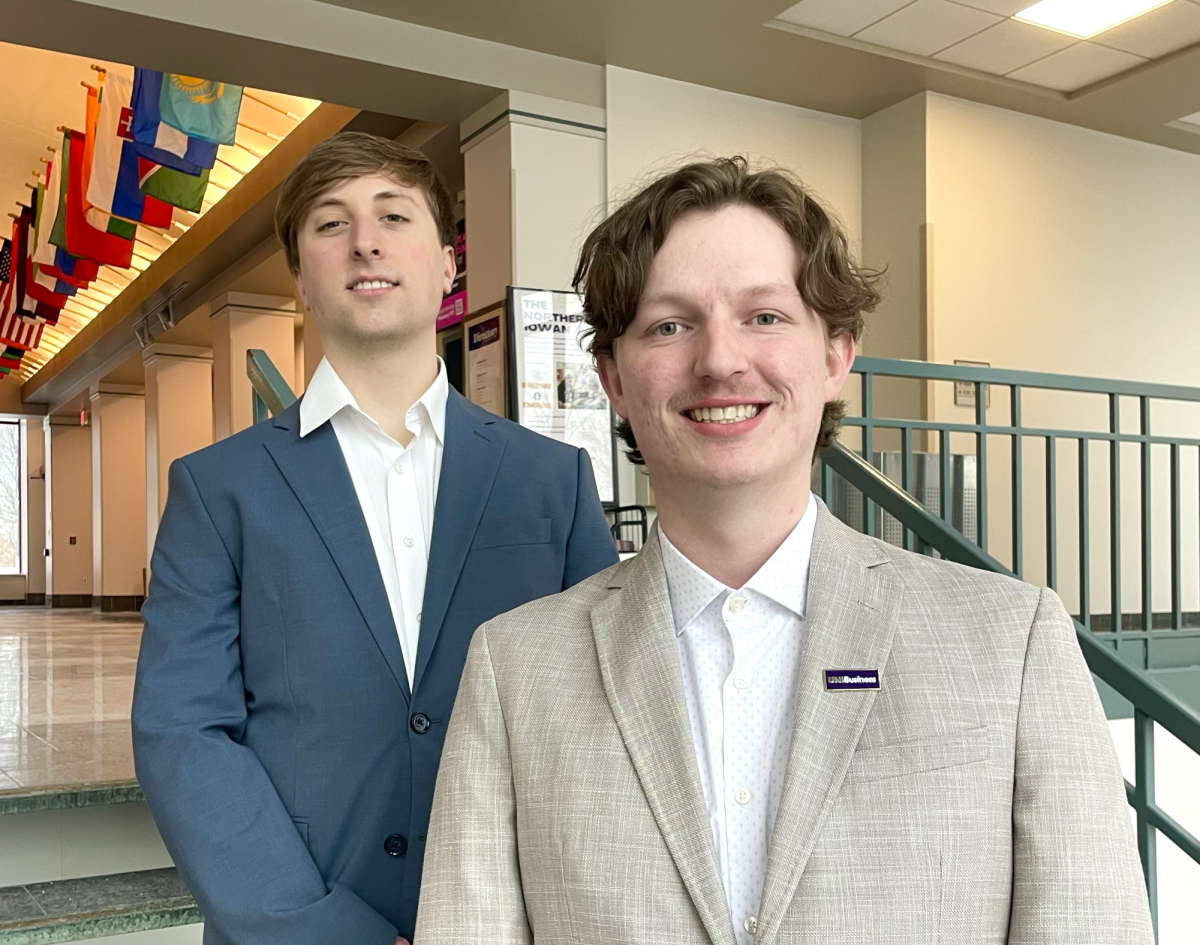As the Campanile bells struck noon, UNI student Archer Trip took the stand in front of a growing group of students on steps leading to The Commons. Armed with a small pride flag, a pair of aviator sunglasses and a hand-drawn sign that read “Keep DEI Here!” Archer addressed the crowd saying, “Every part of our personal and professional lives are affected by DEI.”
Nic Trip, who co-organized the protest along with their sibling Archer Trip, said their goal is to advocate for people who do not have the opportunity or ability to advocate for themselves.
“Several staff and faculty were told not to appear today,” Nic said. “That was something that worried us and a lot of people. There are several people who didn’t show up because they were worried about the consequences of even being at a rally.”
Meanwhile, inside The Commons, the Iowa Board of Regents deliberated upon recommendations made by a Diversity, Equity and Inclusion (DEI) study group. The group was created last June after Governor Kim Reynolds signed a bill earlier this year directing a “comprehensive study and review of the diversity, equity and inclusion programs and efforts of each institution of higher learning under [its] control.”
While the BOR study group does not define DEI in their report, they said they used definitions currently adopted by the three Regent universities and definitions in other states that have recently passed legislation related to DEI in public higher education.
The following is UNI’s official definition of diversity as cited in the report: “Diversity describes the rich differences that people bring to the University of Northern Iowa community. It can refer broadly to culture, identity and ideology, or more specifically to age, gender, race, ethnicity, sexual orientation, religion, ability, gender identity, socioeconomic status, political affiliation, marital status, national origin, or veteran status. Diversity is a dynamic concept, shaped by history, and changing as our understanding of the world and its people evolves.”
The study group met over the summer to review DEI programs at Iowa State University, the University of Iowa and the University of Northern Iowa. The group said it looked at recent legislation regarding DEI in Florida and Texas as part of its review.
The report in question notes ten recommendations which are divided into four categories: current structure of DEI and compliance functions, human resources, academic and curricular matters, and free speech and related matters.
Concerned about the future of DEI programs at the University of Northern Iowa following this study, Archer and Nic organized a protest in support of DEI programs. Several students took turns addressing the crowd in emotional pleas, many emphasizing how DEI programs at UNI helped them on their journeys as students.
One student who identified themselves as Carolina took the stand in front of the crowd of protestors and expressed how DEI had affected her time at UNI. They said, “I am a Latina queer woman and arguably, someone who is very affected by DEI. I find it incredibly salient that we keep fighting to keep these services on campus.”
They continued, “Going to a PWI, a predominantly white institution, can be an incredibly isolating experience. I’ve met several friends through DEI services, and knowing you have that community here on campus is incredibly important to feeling a sense of belonging at UNI.”
Another student, James, said DEI programs are a great resource for students.
“DEI offers a space for everyone in the community and specifically on campus to go and be themselves. This affects me as an RA because DEI is a fantastic place to not only get educational sources for myself, to make my communities welcome, it’s also a place where you have people who are very educated and good at what they’re doing.”
Many students relayed how DEI resources on UNI’s campus have allowed them to discover their authentic selves.
A student who identified herself as Sarah said Gender and Sexuality Services helped on their journey of discovering their identity.
“Through DEI services I figured out I was an asexual. Without DEI services I probably would’ve struggled even longer. I felt like I was missing something and something was wrong, but through DEI services I was able to figure out that I’m not wrong, I’m just different.”
Some students who attended expressed their support as allies of the movement despite not using DEI services themselves. A student who identified himself as Logan said to the crowd, “I will be completely honest, before this I did not know about DEI but I did know about the importance of diversity. I am a white male, and being at this university has shown me the importance of diversity and teaching different stories and how important that is to building a community and uniting people.”
Northern Iowa Student Government (NISG) Senator Joshua Walsh was also in attendance and addressed the group of protesters, encouraging them to continue to speak up about DEI programs.
“I’ll keep it short and sweet, you don’t need to hear a cis(gendered) white male stand here and talk, but I just wanted to say it wasn’t long ago that Iowa was at the forefront of the gay marriage movement, and now we have to stand outside a university and fight for DEI programs. I want to thank everyone for coming out, and I want all of you to keep fighting.”
The following day, after a lengthy discussion, the BOR chose to approve the recommendations made by the DEI study group. The recommendations most notably included a suggestion to restructure DEI-related departments and offices necessary for compliance and accreditation.
The DEI recommendations accepted by the regents are as follows:
- Restructure DEI offices nonessential to compliance and accreditation.
- Review all college, department or unit-level DEI positions to determine whether their job is necessary for compliance, accreditation or student and employee support.
- Review services provided by offices currently supporting diversity or multicultural affairs to ensure they are available to all students.
- No employee, student or faculty members will be required to disclose their pronouns upon application or submit a DEI statement unless the position is required for DEI-related compliance or accreditation.
- Develop a BOR policy stating admissions cannot be based on race or other protected class characteristics.
- All DEI-related general education courses will be reviewed to ensure students have a wide array of courses to choose from to fulfill their requirements.
- Issue standard employee guidance regarding the separation of personal political advocacy from university business.
- Explore potential recruitment strategies for advancing diversity of intellectual and philosophical perspectives in faculty and staff applicant pools.
- Develop a proposal to establish opportunities for education and research on free speech and civic education.
- A reminder should be issued by the regents on requirements of 4.2.I, which governs university websites and communications.
According to the study group recommendation document, the recommendations “are not intended to prohibit programs, campus activities, or functions required for compliance with state or federal laws, rules, regulations, grants, or contracts; or those necessary to meet the minimum requirements for obtaining or retaining institutional or discipline-specific accreditation.”
The only change to the 10 recommendations was a minor wording change from “develop” to “explore” in the ninth recommendation.
The board also reviewed a current student and faculty forum, which showed the programs were “critically important” to students and faculty, with 19.8% polled saying the universities needed to go further and add more programs like these.
Archer expressed concern that students will no longer feel welcome at public universities in Iowa, which may prompt them to leave.
They said, “Why would students come to Iowa, number one, if public universities don’t have DEI. Why would students who are here stay if DEI services are taken away? Why would they stay when they are not supported?”
Nic reflected Archer’s sentiments, and said DEI programs often draw students to universities.
They said, “All students who talked today remember why they chose to be at UNI and oftentimes that is directly impacted by seeing the Diversity, Equity and Inclusion resources.”
UNI President Mark Nook assured UNI will continue to try and support students to the best of their ability, regardless of the BOR decision.
“This is an institution that’s always made a commitment to making sure that every student has an opportunity to be successful,” Nook said. “We are not going to change that regardless of that students’ background or their race, ethnicity, gender orientation, it doesn’t matter, we are going to make sure they have support mechanisms so that they are comfortable getting an education here. We will continue to have every student, staff, and faculty member reach their educational, professional and personal life goals.”
UNI’s Director of University Relations, Pete Moris also reflected Nook’s sentiments regarding the university’s stance on their continued mission to support students. He said in a press release, “The University of Northern Iowa will allow the Iowa Board of Regents to consider the recommendations of the DEI Study Group at its November meeting before making any public comments on those recommendations. The university will continue providing exemplary support to all of our students, faculty and staff as we await further dialogue on the topic of DEI.”

